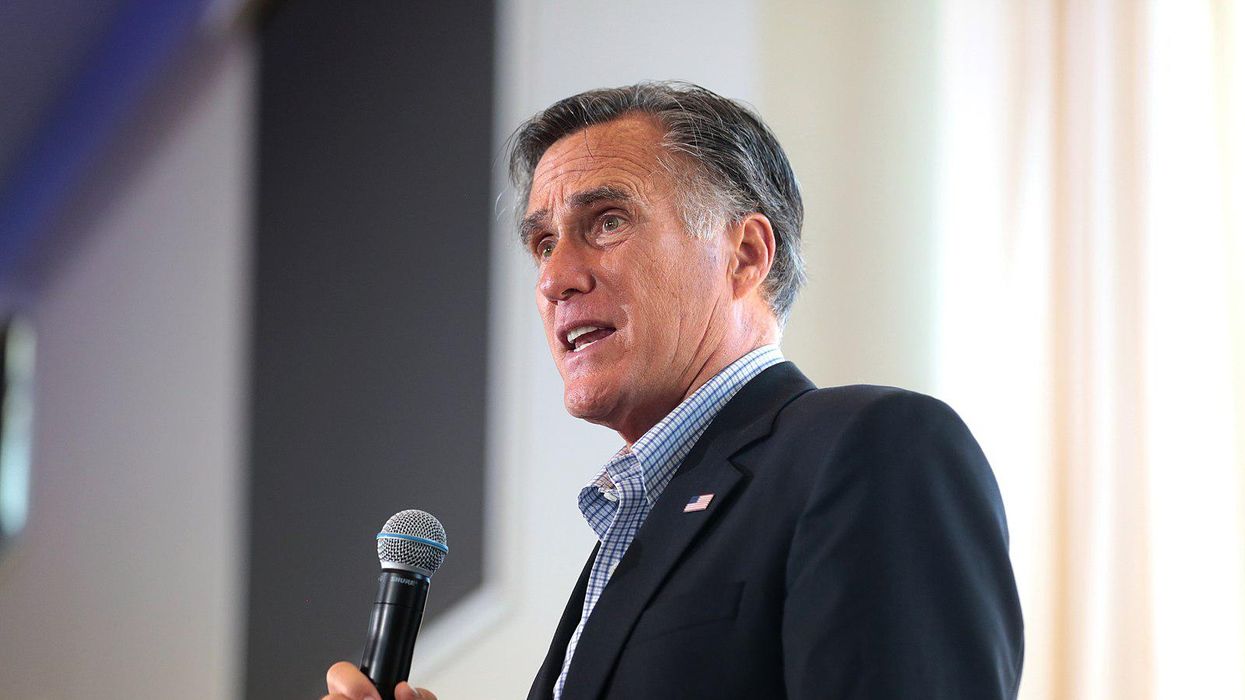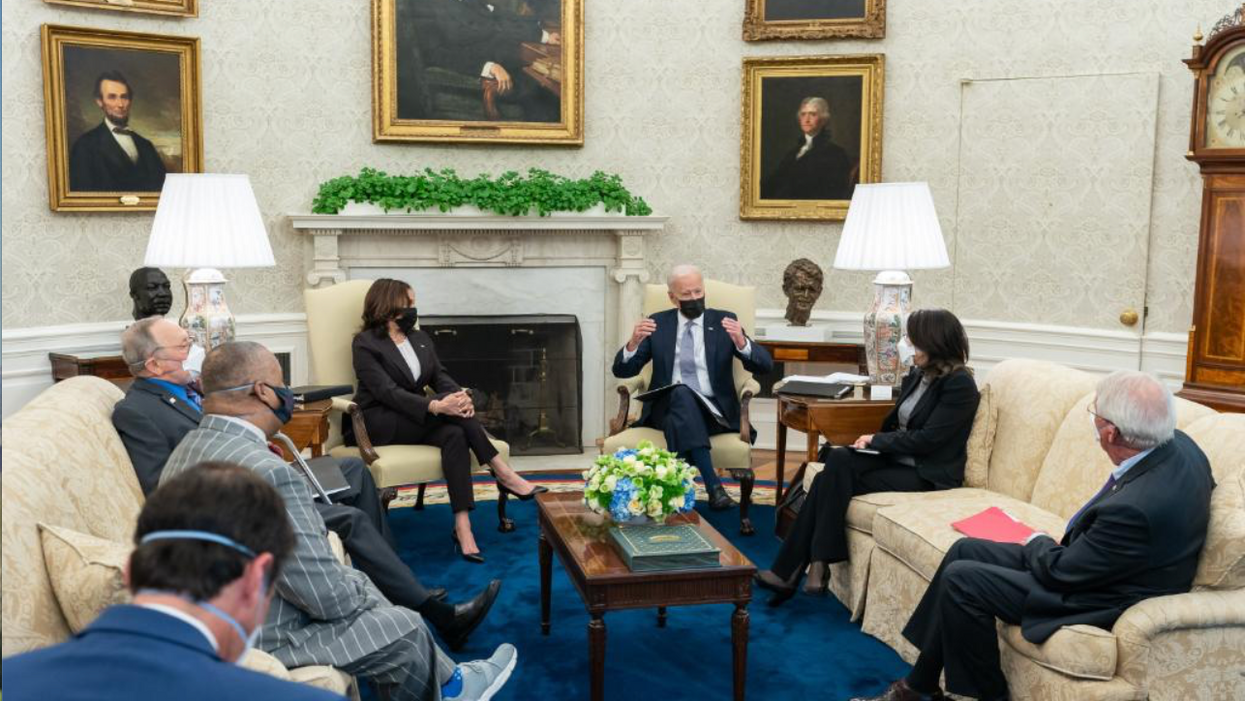Romney’s ‘Deal’ Would Tax Working Families, Not Corporations
Reprinted with permission from American Independent
A new infrastructure plan being pushed by Sen. Mitt Romney (R-UT) and a bipartisan group of senators would not increase corporate taxes at all. Instead, it would raise taxes on every American who buys gasoline — running afoul of the president's promise not to raise taxes on working families.
The group of 10 senators said Thursday they had agreed on a blueprint for $579 billion in new spending on transportation and broadband infrastructure. It would reportedly not include any immediate tax increases but would index the gas tax to inflation, meaning consumers would likely pay more each year.
Senators Bill Cassidy (R-LA), Susan Collins (R-ME), Joe Manchin (D-WV), Lisa Murkowski (R-AK), Rob Portman (R-OH), Romney, Jeanne Shaheen (D-NH), Kyrsten Sinema (D-AZ), Jon Tester (D-MT), and Mark Warner (D-VA) called their plan a "realistic, compromise framework to modernize our nation's infrastructure and energy technologies" in a joint statement.
This plan is a bit more new spending than was offered by a GOP-only group — led by West Virginia Sen. Shelley Moore Capito — which failed to reach an agreement after lengthy negotiations with President Joe Biden.
After initially proposing just $189 billion in new investment above the existing baseline spending (adjusted for inflation), her group would go no higher than $330 billion.
But this proposal is still way less than Biden requested in his American Jobs Plan. He initially proposed $2.25 trillion in new spending on transportation, water systems, broadband, caregiving, child care, climate, and clean energy infrastructure, funded by increased taxes on corporations. Biden's package enjoys widespread popular support, with 68% of American adults backing it in a late April Monmouth University poll.
In late May, Biden offered to bring the total down to $1.7 trillion. Still, not a single congressional Republican has indicated support.
Biden ran on a campaign promise not to raise taxes on anyone making less than $400,000 annually. GOP lawmakers, who oppose raising taxes on the rich and businesses, have instead urged an increased gasoline tax.
But the White House has reportedly objected to this idea, noting that it would raise little new revenue and would violate Biden's promise.
Most Americans back the idea of funding infrastructure investments with more corporate taxes. The same April Monmouth University poll found 64 percent for the idea.
Even Rep. Don Young (R-AK), the longest-tenured member of Congress, included a four percent increase in the corporate tax rate in his own infrastructure proposal on Thursday.
Because many people who make under $400,000 a year drive cars, the gas tax increase would put much of the burden on lower- and middle-income Americans.
Sen. Bernie Sanders (I-VT), who caucuses with the Democrats and chairs the Budget Committee, opposed the idea last month.
"Unbelievable but true: The same Republicans who voted for trillions in tax breaks for the top 1% and large corporations," he tweeted on May 15, "now want to increase taxes on working families through user fees, more toll roads and higher gas taxes while cutting Social Security, Medicare and Medicaid."
Even the right-wing Americans for Prosperity has been critical of indexing the gas tax to inflation.
Michael Lambert, a policy analyst for the dark money group, wrote in the Hill last year that such a proposal is "a tax hike on workers and families" and that "raising the already regressive gas tax would disproportionately hurt those who can least afford it."
Unlike Biden's proposal, the senators' counterproposal would do little to address the climate change crisis. Last week, the Scripps Institution of Oceanography and the National Oceanic and Atmospheric Administration reported that the amount of carbon dioxide in the atmosphere reached its highest monthly average in recorded history — a huge threat to the climate.
Some Democratic senators are pushing back.
"No climate, no deal," warned Sen. Ed Markey of Massachusetts on Wednesday.
Rhode Island Sen. Sheldon Whitehouse complained on Monday that "Climate has fallen out of the infrastructure discussion, as it took its bipartisanship detour. It may not return."
On Thursday, Sen. Ron Wyden of Oregon — chair of the Senate Finance Committee — told MSNBC that because the Romney group's proposal includes "nothing on climate change" and no corporate tax increase, it is "a complete nonstarter" and the White House "won't accept it."
He said it is time for Democrats to pass Biden's plan through budget reconciliation, a budget process that would let the Democratic majorities in the House and Senate enact a plan without a single GOP vote — if they stay united.
Published with permission of The American Independent Foundation.




